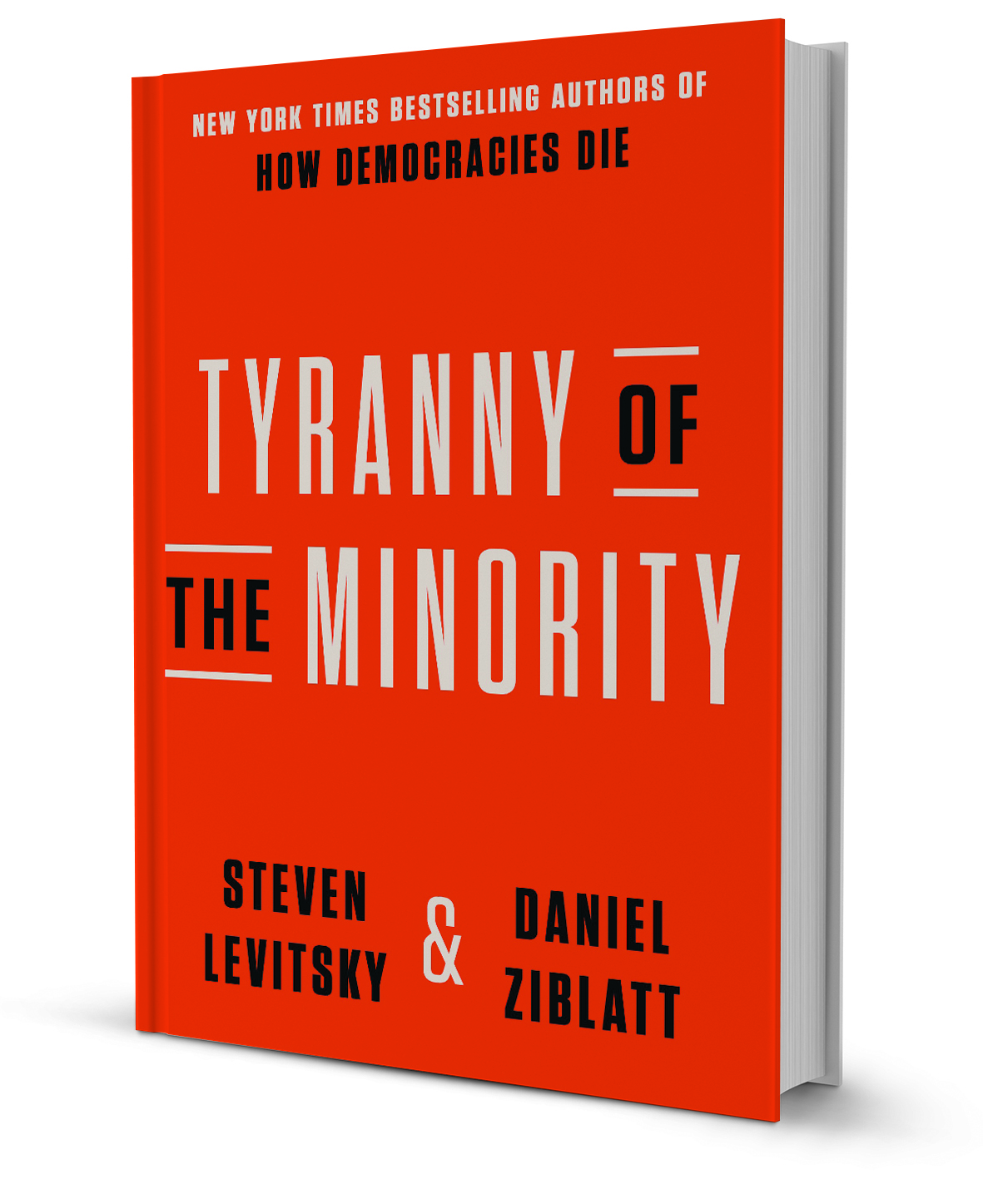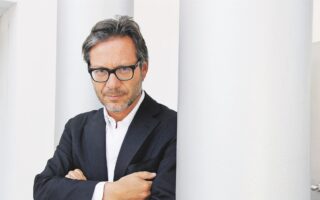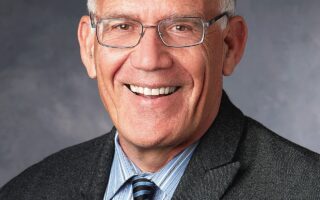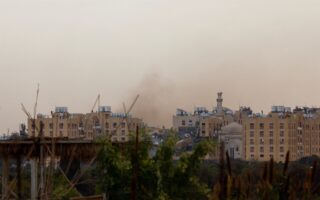Democracy’s demise requires accomplices
Harvard Professor talks to Kathimerini about the threats to democratic institutions, autocrats and those who enable them
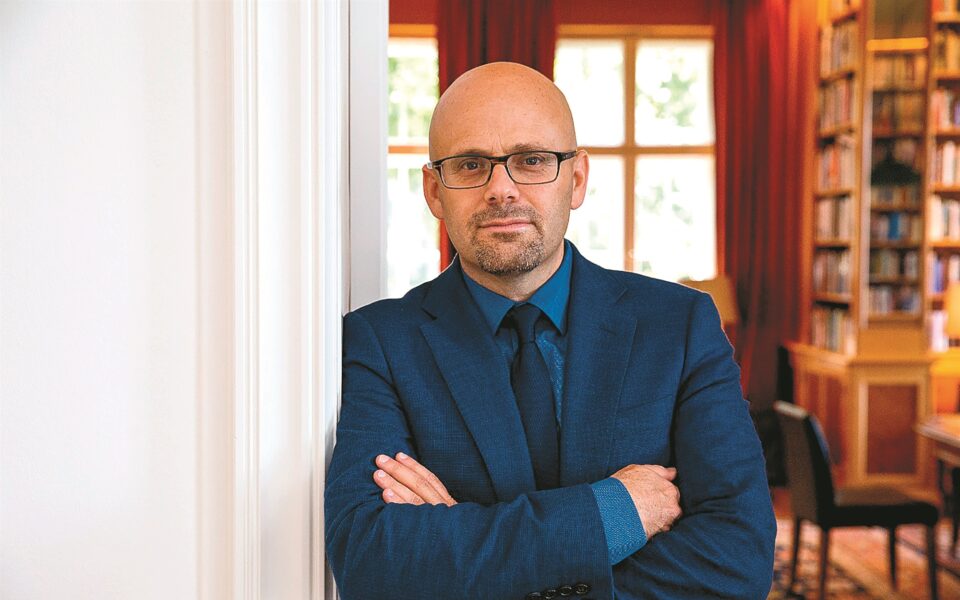
A book co-authored by Daniel Ziblatt and Steven Levitsky became a bestseller in 2018. Its ominous title, “How Democracies Die,” not only provided insights into the erosion of institutions triggered by the rise of Donald Trump, but also proved prophetic concerning the subsequent challenging of election results and the attack on the US Capitol. Five years later, the Harvard professors revisit the same topic in a new book, “Tyranny of the Minority.” On the occasion of the book’s release, Kathimerini interviewed Ziblatt, discussing the current toxic state and uncertain future of democracy in the United States – and beyond.
Let me ask you, do you think American democracy is really sick?
It is certainly sick. Sometimes people ask me, “Is it dying?” I don’t think it’s dying, but it has certain symptoms of illness that that should make everybody worried.
Ιn your last book you talked a lot about the US Constitution and how it works as an alibi for different interest groups to hold the country back in some ways. Any chance this could be reformed?
I think so. It’s difficult. The US Constitution is the hardest constitution in the world to change because it requires two-thirds of the House, two-thirds of the Senate and three-quarters of the states. That’s why it’s only been amended 27 times in its history, so it’s difficult, but there have been changes we sometimes forget. There is a tradition of working to make the Constitution more democratic and some of the things that people love most about our constitution or things that have come about through amendment are the 14th Amendment, which guarantees equal rights for everybody, and the 15th, which prohibits vote restrictions on voting rights. These things came about through social pressure on political leaders who amended the Constitution. We’ve stopped doing this kind of work and so our constitution has become frozen since the 1970s.
What would the founders of the US think if they saw the US today?
They would be astounded I think. They were certainly afraid of majority tyranny. That was something that they were really aware of and allergic to. But they were also really worried about the problem of minority tyranny. And so Alexander Hamilton looked to Poland in the 17th and 18th century and saw a system where a member of the Polish Senate could block any piece of legislation this led to the destruction of Poland. So he was very worried about this potentially happening in the United States. The Founding Fathers were against things like the filibuster. They were nervous about the Senate because it also presented opportunity for minorities to block the majority.
One of the one of the terms you have used, really strikes me: democracy’s assassins. Who are they in this world?
There’s usually a couple of different types of political leaders around. There are those who directly assault democratic institutions. They often use violence and may be dressed in military fatigues – driving tanks, carrying guns, literally. But what’s pretty interesting when you look at the history of democracy is very often those aren’t the only people that matter. There’s usually not enough of them to kill a democracy. Democracy’s demise doesn’t only need assassins. It also needs accomplices, those who are mainstream politicians who look like normal democratic politicians sometimes wearing suits. Talking like democratic politicians, but who in the end enable or refuse to condemn the democracy’s assassins. These accomplices actually are the ones ultimately – if we look at 1920s and 30s Europe or the 60s and 70s in Latin America – who kill democracy.
One thing I find fascinating is that all strong leaders of our era are on the wrong side of history. Like Erdogan, Orban, Trump and so on. Why is this?
‘I’d rather live in a poorly functioning democracy than in a poorly functioning authoritarian system’
I don’t think this is always the case. I think part of what makes somebody seem like a strong leader is a kind of charisma. And charisma often comes from those who are opposed to the existing order. It’s easier to attack an existing order than to defend an existing order. And so the outsiders are often those who develop a message that has mass appeal and a kind of sharp critique of the existing order. After 1990 and the collapse of communism, we’ve lived primarily in a world where democracy is the hegemonic form of political organization. So it kind of makes sense that those who attack it are going to be opposed to democracy. Unfortunately. We need also the political leaders who can defend democracy.
Even though you wrote about the death of democracy, were you shocked by what happened on January 6?
Yes. Yes. Yes. The thing that prompted us to write our first book was hearing candidate Trump say, “I may not accept the results of an election,” and we were worried about this. I remember December 2020, meeting with concerned groups of citizens who were saying, “What are we going to do if Trump won’t leave office?” And I was saying: “Well, now they will. Don’t worry.” We were on the phone watching the scenes on television saying: “What is this? A big deal or not?” And it became really clear immediately that there wasn’t just a few people in the streets but that there was a broader conspiracy. And so that’s what made it so frightening to think.
Do you think the US will go through another episode like this?
I think it’s very possible. I would say in some ways that once it happened, it makes it more likely because it becomes a kind of repertoire of political action, a familiar repertoire. It was shocking in 2021. Nobody could agree on what it was. Some people call that a putsch, other people call that an insurrection, other people call it a coup. So I think that if the next election is very close something like this could happen again, although now the defenders of the democratic order are much more aware of this happening. And so I think police will be much more alert and ready to defend against this.
How do you think it affects the United States’ international standing?
What’s so striking is that the US is a rich democracy. It’s an old democracy. Those two things, according to social scientific evidence for the past hundred years, should inoculate a country from this kind of crisis. And so what’s so striking is that over the five years from 2016 to 2021, the US is the only established advanced democracy that is an old democracy that is going through a genuine episode of democratic backsliding, where its rankings and international indices – like Freedom House – actually dropped pretty significantly.
Do you see any other sort of model of governance or another form of democracy developing?
There’s a temptation – especially if you’re critical of democracy – to say, “Well, this shows the weaknesses of democracy. Maybe there are better models out there, Singapore, China, you know,” and I think that’s not the right way to think about this. I mean, of course one can point to exceptional places like Singapore. But for every Singapore there are dozens of authoritarian countries where no one would want to live, where the economy is in shambles, where there’s active coercion on citizens in their daily lives, arbitrary power. And so when we imagine, “Well, maybe we should have an authoritarian system,” really what we ought to be thinking about are all the other types of authoritarian systems that are out there. I’d rather live in a poorly functioning democracy than in a poorly functioning authoritarian system. A second point I would make is that it’s easy to mistake all of the turmoil that one sees in Western Europe – let’s say the rise of right-wing populist parties or the rise of Trumpism in the US – as a sign of weakness. But I think, really, what we’re seeing is possibly a process of self-correction at work. Democracies, unlike authoritarian systems, are highly transparent. We can see all of the trouble taking place right in front of our eyes, reported on an hourly, daily basis. In authoritarian systems the curtains are drawn shut. We don’t see what’s happening. And so when authoritarian systems collapse (I mean think of the collapse of communism), it happens overnight and it always comes as a surprise. In democracies we see all of the trouble in front of us. And so we mistake that for weakness, but actually it may be a source of resilience, that there’s a process of self-correction at work.
Well, I detect an almost metaphysical faith that the American system can reinvent itself. Do you think the elites will redesign the system?
It will not come from the elites. There’s a long tradition of civic mobilization that made America more democratic and stronger simultaneously. If you think of the early 20th century, the Progressive movement was a movement of outsiders, that Theodore Roosevelt put himself at the front of and included a whole series of dramatic radical reforms, including giving women the right to vote, directly electing our senators, introducing progressive income taxation. All of these reforms, which at the time were regarded as radical, were pushed by citizens – middle-class citizens often as well as working-class citizens – and reformed America. So the 20th century is the American Century and in large part because these reforms were successful. If you think of the Civil Rights Movement similarly, I think that the Civil Rights Movement was in part carried out in the face of the Cold War and in the perception there was a hypocrisy that we were supposedly a democracy in the middle of the Cold War. So we needed to make our system more democratic and I think this has been a source of strength for the past 50 years. And so I think today we need a similar kind of movement of institutional reform to make our democracy work better and more effectively.
Finally, how does it feel to be sitting here at Harvard and sort of observing the world?
I’m very distant from, you know, sitting in Cambridge. It’s very distant from a lot of the troubles that one has within the US. I mean, I’m a citizen and I grew up in a forest and the woods of California, and so I do have a sense of what’s happening within the country. I mean, my whole life is not here at Harvard. So I do have a sense of the turmoil, the polarization and the fear that citizens feel. But I also do think that – this is not what your question is intending – but one of the nice things about being here is the international connections of Harvard. So we do get a sense of the global stakes of what’s happening. That this is not just a fight that concerns Americans. This is the kind of fight that concerns everybody.
